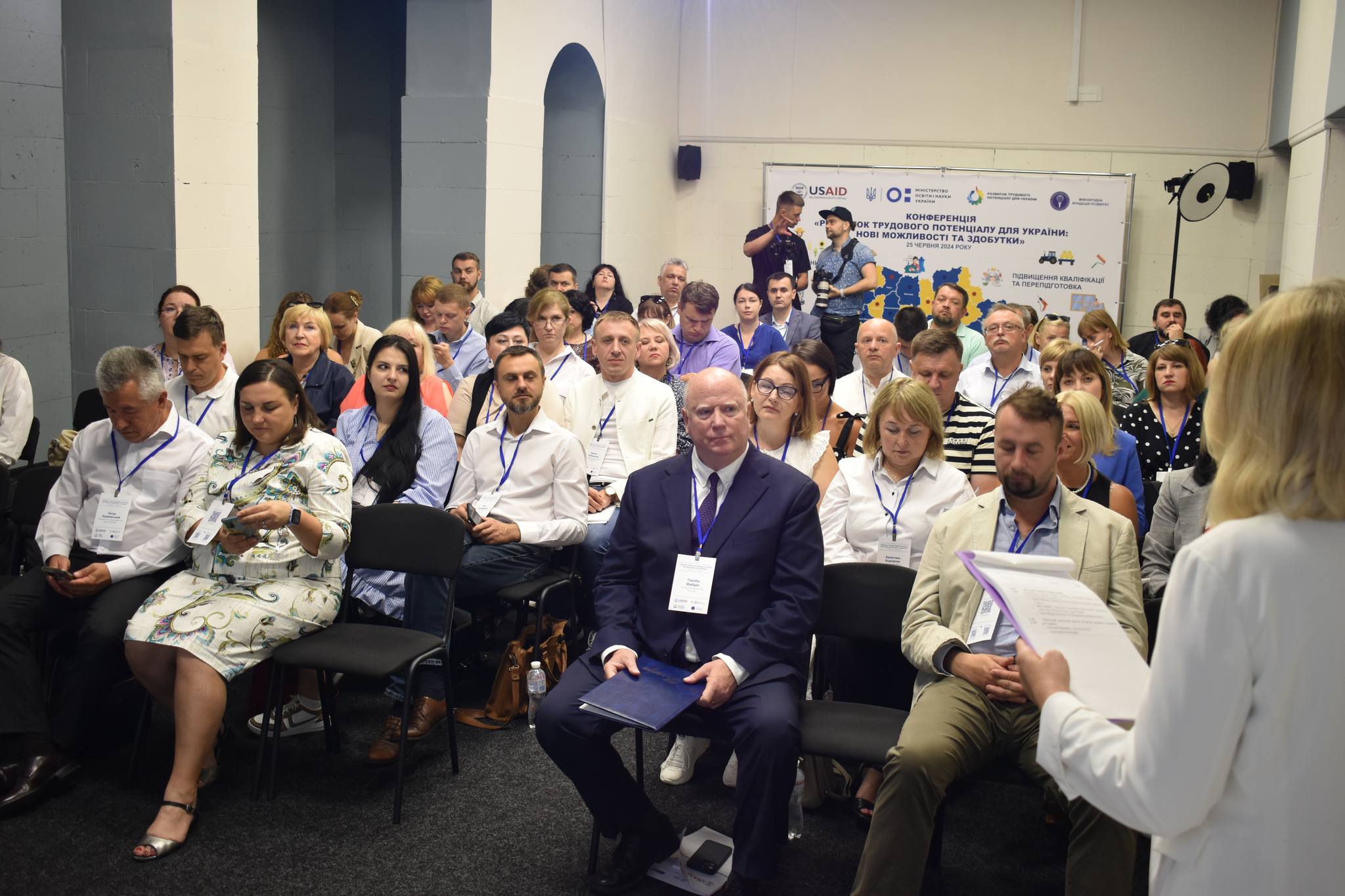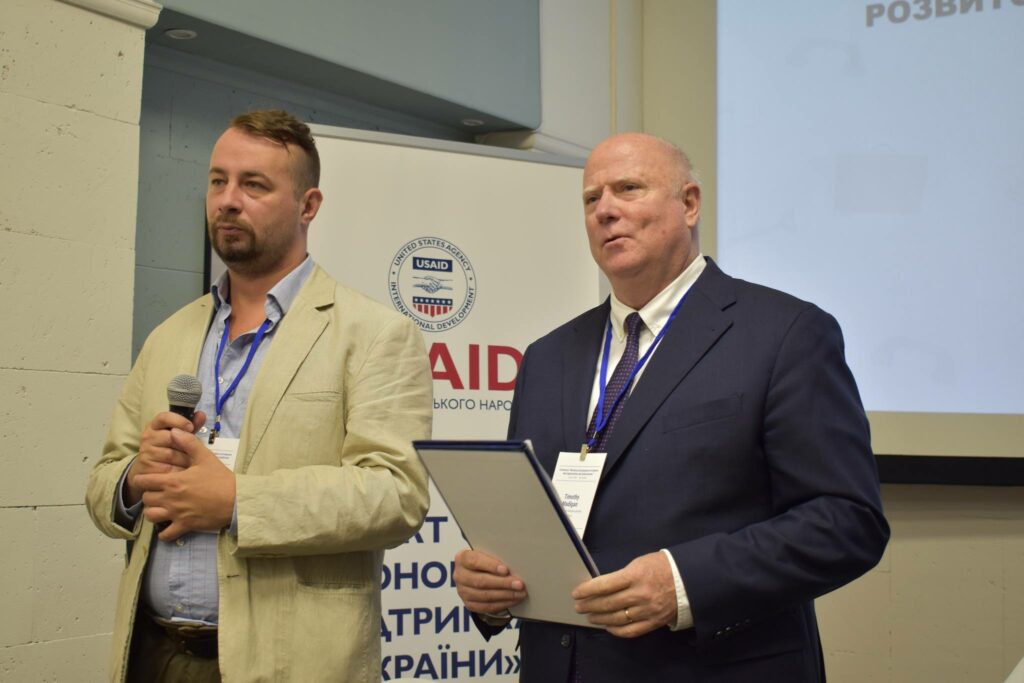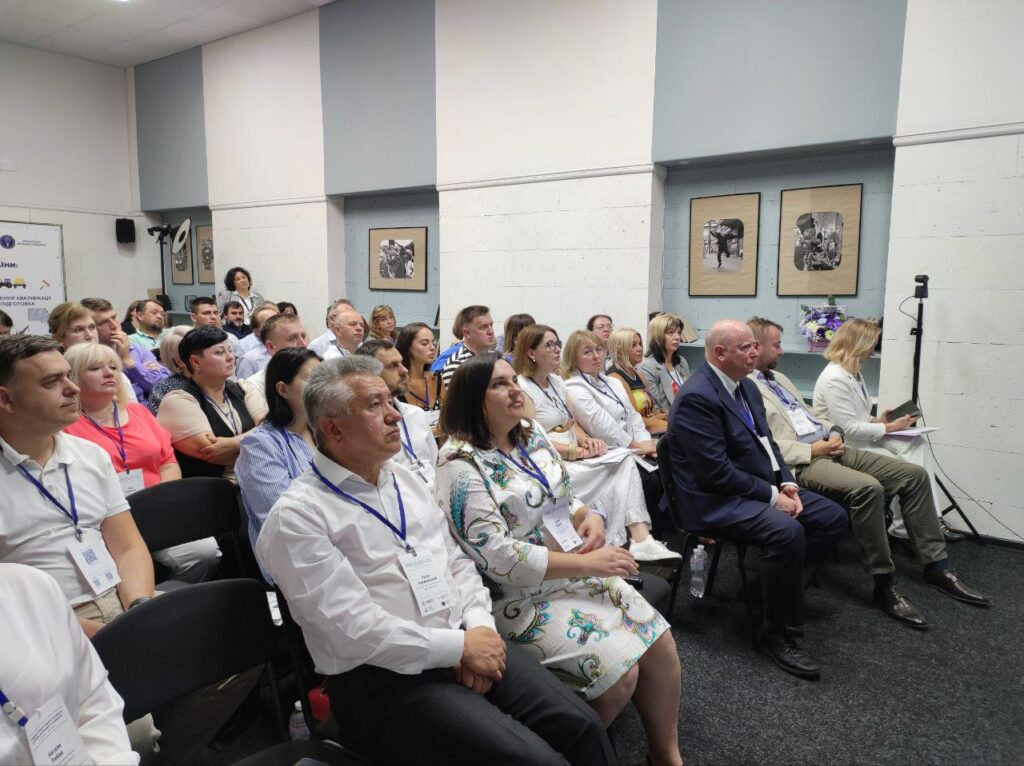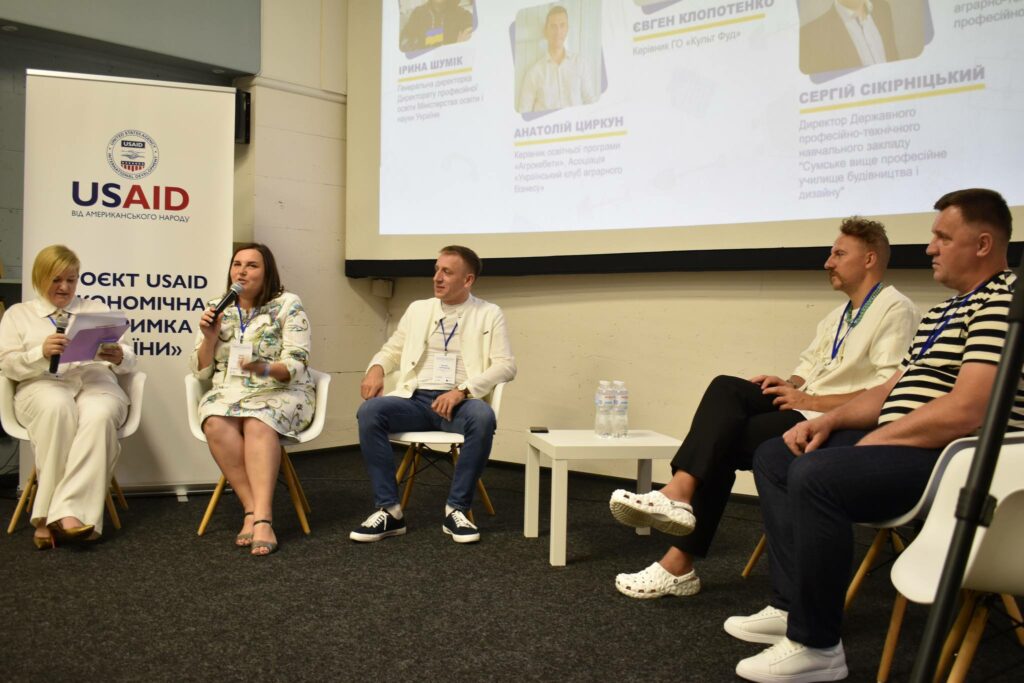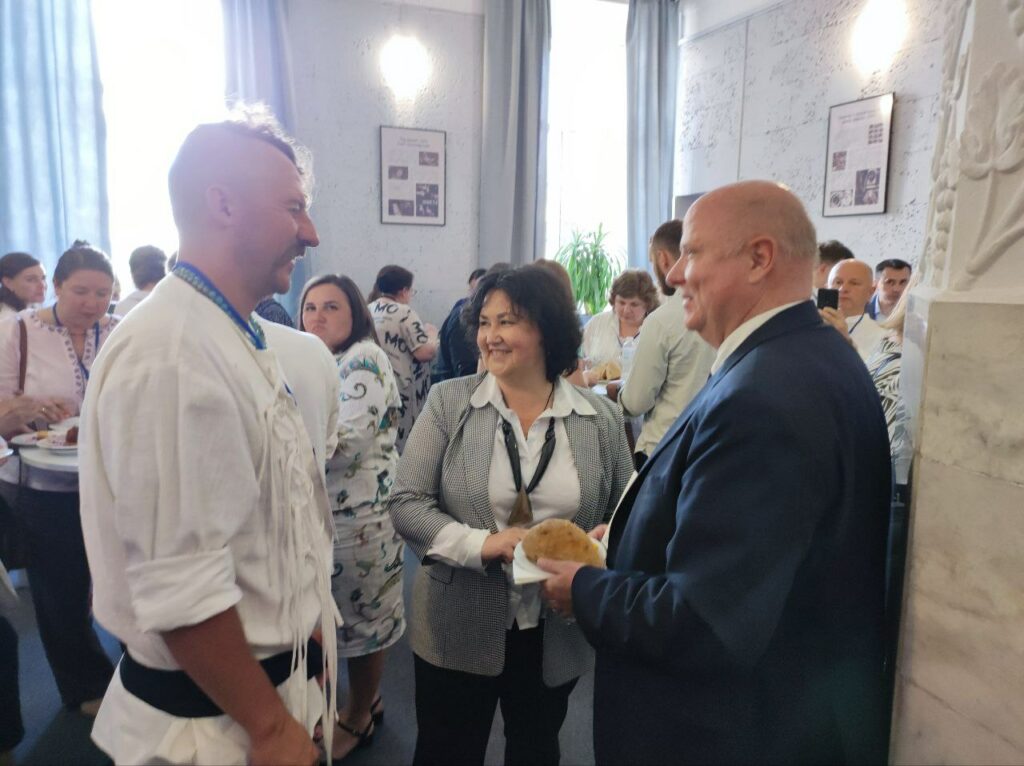On June 25, the USAID Economic Resilience Activity (USAID ERA) organized the conference, “Workforce Development for Ukraine: New Opportunities and Achievements,” in Kyiv. The conference brought together more than 50 of USAID ERA’s partners, including representatives from the Ministry of Education and Science of Ukraine, professional and higher educational institutes, construction, mechanical engineering, production, services and agricultural sectors, NGOs and regional state administrations. More than 50 participants also joined the event online.
The conference shared results of USAID ERA’s “Workforce Development for Ukraine” project, implemented by the NGO, “International Foundation of Development. The project ran from July 2023 to June 2024 and aimed to strengthen institutions of higher and vocational education and regional state administrations’ capacity to improve qualifications and train adults, especially immigrants and other vulnerable populations. Conference participants discussed prospects for further development of Ukraine’s labor potential, challenges and possible solutions.
“During the implementation of the project, our partners from the International Foundation of Development trained many specialists, including university teachers and those working in key sectors of the economy,” explained USAID ERA Chief of Party Timothy Madigan. “People and enterprises from 24 regions of Ukraine joined the project, which has influenced our partners. Universities and institutions of professional and technical education have improved their programs, and companies have developed new approaches to personnel and their retraining. Your efforts are not just help to specific employees, but also the development and recovery of Ukraine’s economy.”
Throughout the project, more than 160 trainings (online and offline) were held, in which more than 4,000 specialists took part, including more than 800 of representatives of agricultural companies involved in grain export. For example, a training at Lin Institute for elevator complex specialists focused on optimization of production processes, maintenance of wagons, generators, grain drying, soft and meta-skills, and various aspects of export logistics, control and measuring devices and automation.
“We are very grateful that our specialists from elevator complexes were able to participate in the training offered by the project – we can already see that it affects the business – it allows us to optimize certain processes at the elevator, speed up the preparation of grain, its drying,” said Oleg Surenshchikov, manager of training and personnel development of Nibulon. “We need such training, which will allow us to know more about European and American grain quality standards, because we supply grain to world markets.”
The project also provided training to 66 chefs-in-training at vocational institutions, who created updated school menus.
“I have long dreamed of changing the typical school menu so that children would want to eat what was prepared for them,” said Yevhen Klopotenko, head of the Cult Food NGO and instructor of the course. “First I published a recipe book, and then decided to teach chefs how to cook the dishes. To do this, we cooperated with vocational and technical education institutions that train chefs who then work in schools. I am grateful that I was able to join the project and show cooks what school lunches can be like. I believe that with such steps, in a few years we will change the entire school food system. I longed for social changes, so I decided to tackle ordinary schools, so the scale of change would be large.”
Conference participants also discussed cooperation between educational institutions, communities and businesses, vocational education needs, implementation and development of new programs, and retraining of the adult population. Many expressed the need for further training or retraining of a variety of specialists, which will be critical to helping Ukraine’s economy recover.





